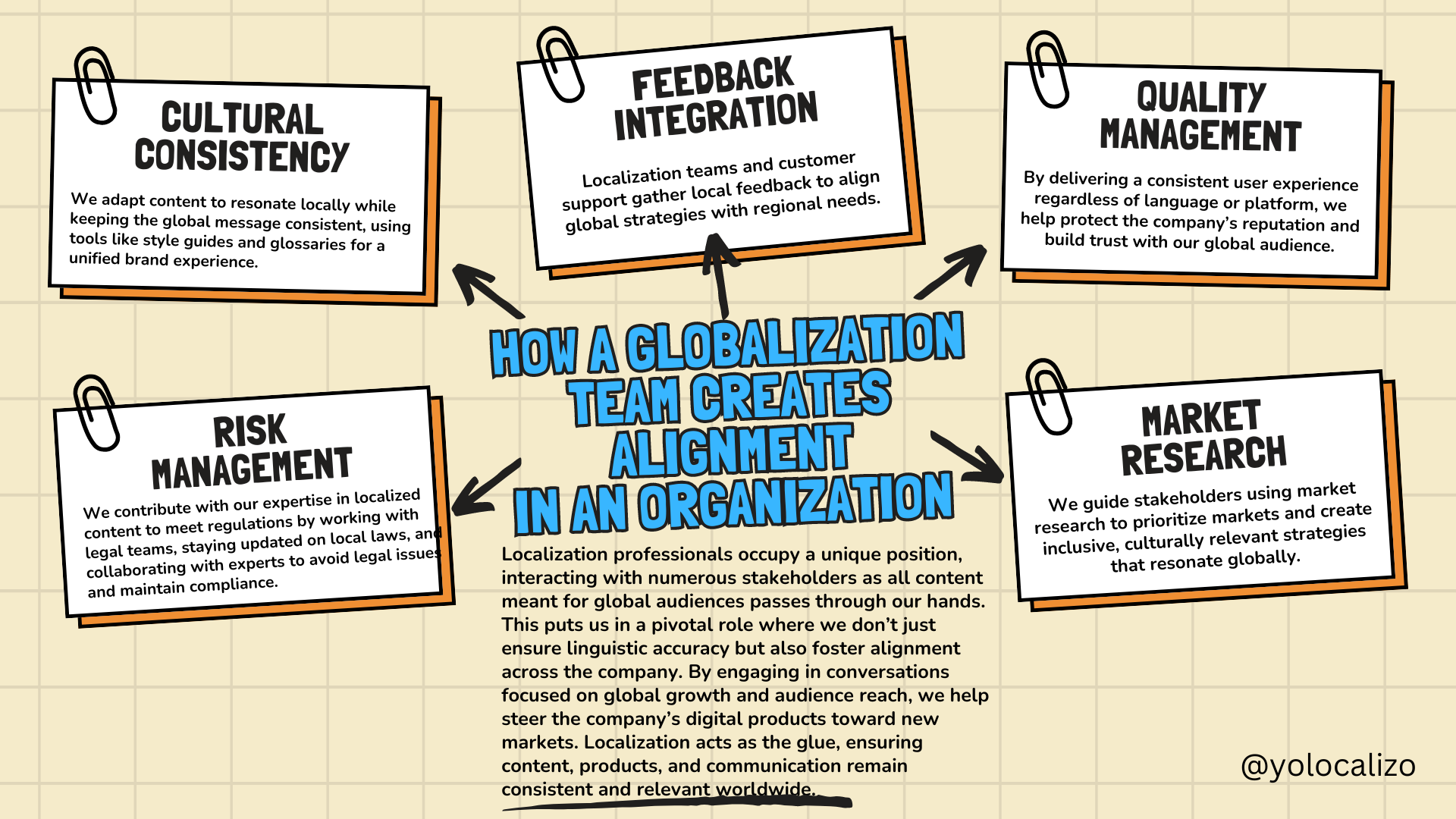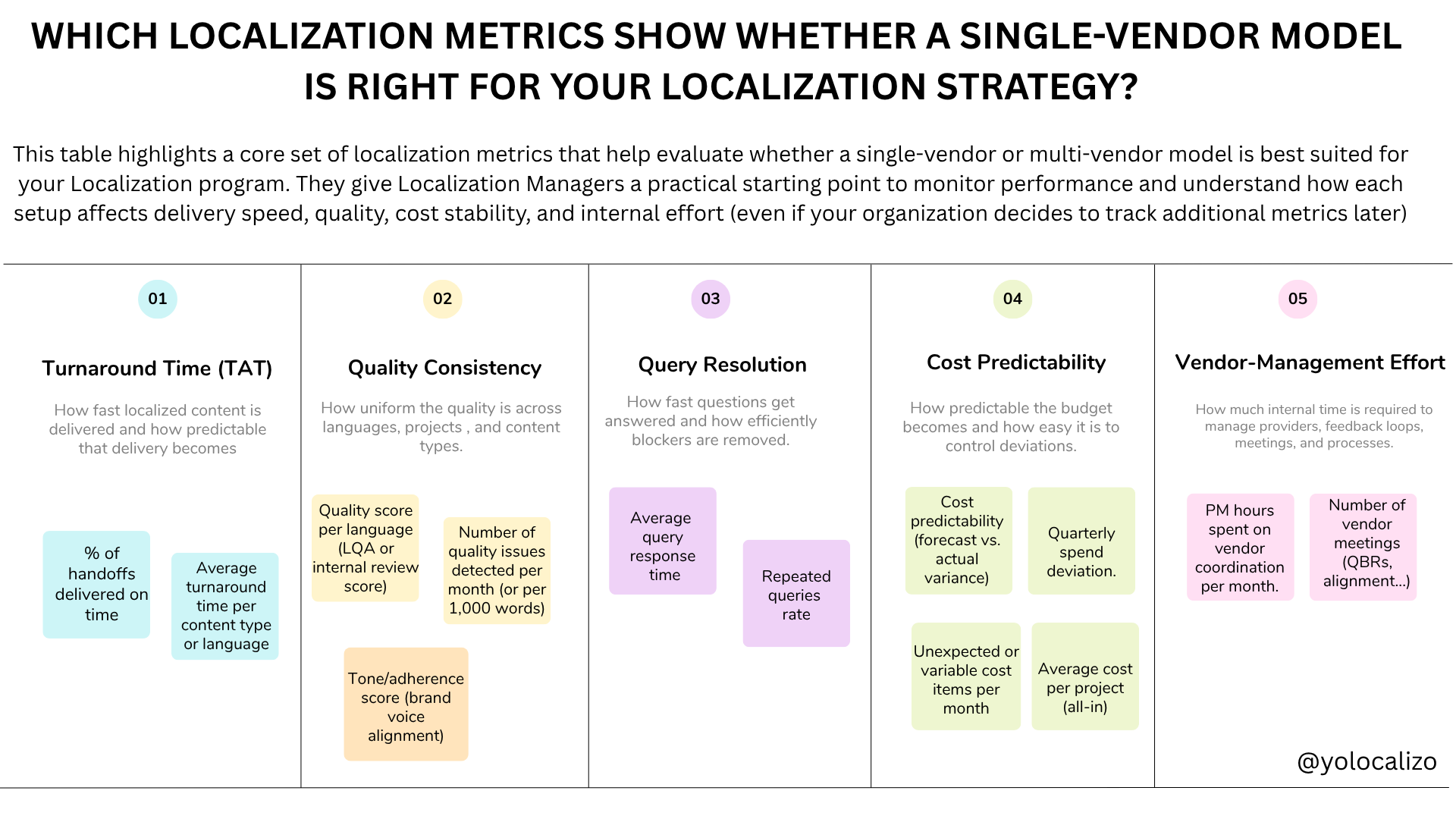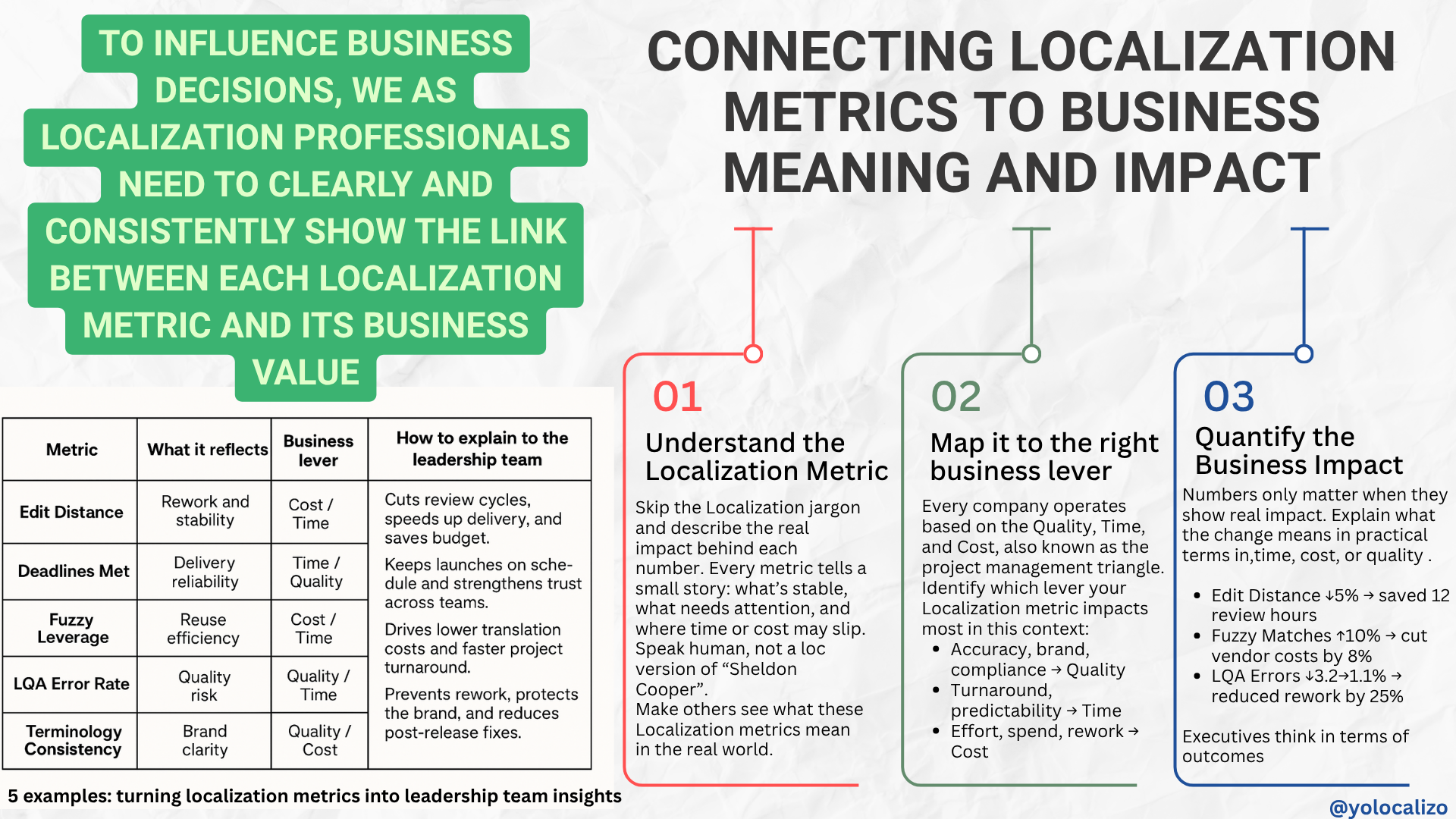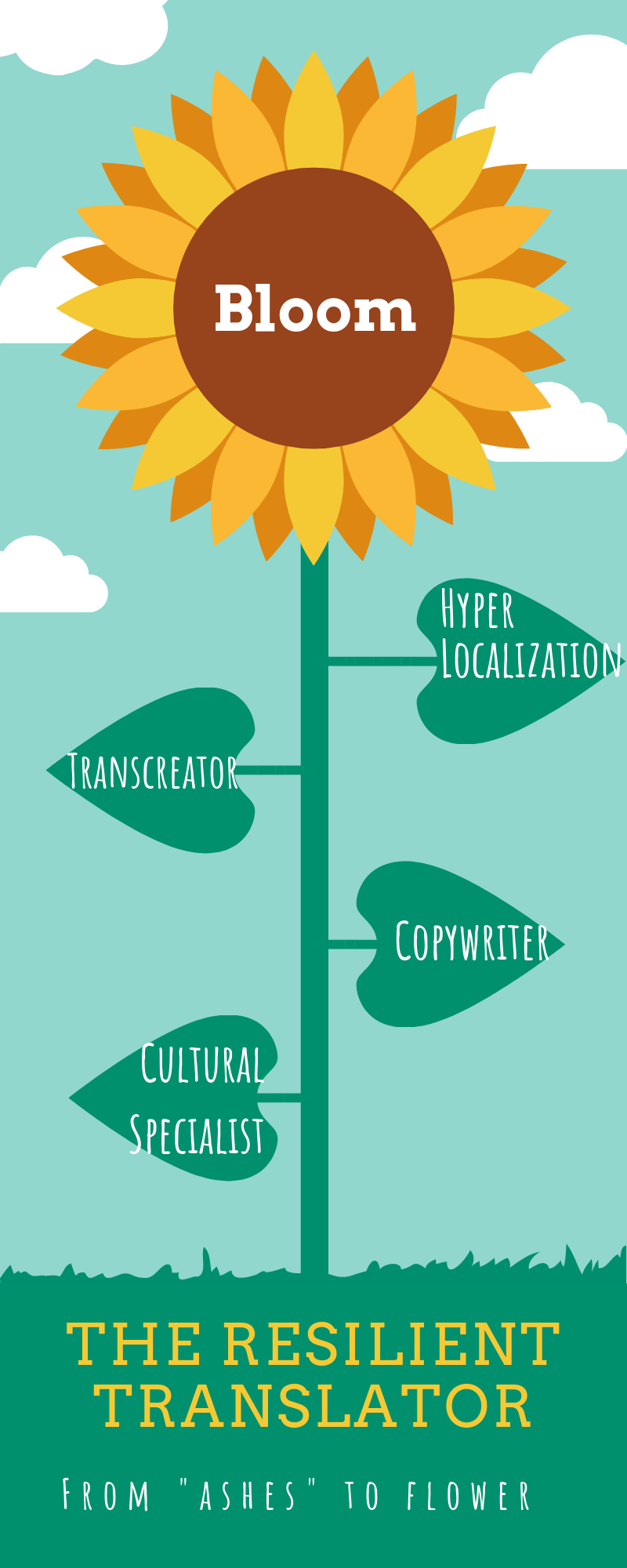The resilient Translator - 4 ways in which translators are adapting and reinventing
During this summer I received an email from a colleague, Manuela, whom I met in a Toastmaster workshop I did on storytelling a few months ago in Barcelona. We connected quickly, and the truth is that we had time to talk about many different topics. Being one of those topics .... my passion and curiosity about the Localization industry.
Manuela reactions to my explanation of what I do for a living, it was the typical reaction that I see when I explain what Localization is. Many people, when they hear for the very first time what is behind the translation industry they are surprised how complex it is!
And that's the reality, many people are not aware that the work done by a linguistic specialist, is much more than a translation, his work is almost being an ambassador of cultures!
Well, in that email, Manuela told me if I could have a talk with a student known to her. She had finished the translation career but had doubts about how to focus her professional career; she was very worried about, "the threat of the machines" ... Some people think that machine translation, Artificial Intelligence etc will mean the end of translators.
But translators are not easy to exterminate! they are a very resistant breed, that evolves, that changes, that adapts. And that's what I said to this girl, to Susana, an almost graduated in philology who is trying to decide her future; and about this I want to reflect this week in my post. I am fascinated by the ability of translators to adapt and keep having a key role in the industry
Below I summarize how the translators have reinvented to remain relevant, there are probably more evolution roles than the ones I put down, if so, please leave your comment below to have a more complete view! Let's help all the "Susanas" who are starting in this wonderful industry of localization!
Traditional translators are evolving ... might evolve to..
1.-Hyper localization specialist
Gone are the days where a translator could work on multiple generic projects. Now many translators chose specialisation as a way of survival in the industry; they become niche, they focus, and they are specialists in very specific topics.
Machine translation is now available to everyone, there are sophisticated tools used by many LSP, and there's also an app for our phones or Google Translator available for everyone. But democratization and the access that we all can have to a machine translation tool has shown something; it is clear that there is not just one translation that fits all. Sometimes MT is the only option and sometimes high-quality translation (hyper-localization) is the way to go for some markets segments. This means that MT will not replace humans, on the contrary, it will open a door to demanding clients, clients happy to pay more for top-notch quality content
2.-Transcreators
-Transcreation is one of the most difficult activities within the translation industry. Adapting marketing material from one language into another requires a mix of soft-skills way more complex than we might perceive as a typical translator.
“Transcreation means ‘translating’ and ‘recreating’ the original text in a new language while making sure it is appropriate in the context for which it is intended”
The transcreator needs to have a good understanding of the desired outcome and have the freedom to make as many changes as necessary to make the message resonating in the target market. Translators who evolved in transcreators become marketing specialist and they acquire creative skills as the best tool to keep them relevant in the very competitive translation arena.
3.-Copywriters
Early in my days in the localization industry working at Bowne (Lionbridge nowadays) - the translators rarely had to create something from scratch, most of the time they were just the “messenger”. Nowadays many translators evolved to copywriters. Translation is perfectly fine for informative text, technical documentation or apps with simple UI, but when we want to move our readers, "a call to action", we need translators becoming writers. Translators who evolve into copywriters know how to use tone, style and even jargon to best reach wide audiences. They pay extraordinary attention to aspects like terminology relevant in the industry they are working, they try to find buzzwords and they are really aware of trends in their target countries/markets
4.-Cultural specialist
This is another interesting evolution from the language professionals I've seen. Some translators took the path to become advisors, consultants, bridges between cultures. Cultural specialist plays an important role in this hyperconnected global world we are living nowadays.
Cultural competence is a required skill for anyone working in a global organization. These professionals become consultants, they help businesses who are dealing in the global marketplace with issues that arise due to the differences of cultures; and how those differences are expressed in different forms of behavior, perception, expression, non-verbal patterns, etiquette.
All these issues can cause communication breakdowns, misperceptions, lack of trust when things go wrong. A cultural specialist will not only speak the "language" as we tend to think when we imagine a "traditional translator" but they become specialist and they can create synergy, increased productivity/creativity and bring the morale of a team to a whole new level.
This is all about mixing language/translation skills with Cultural Intelligence, a topic that you can dig more HERE.
I spent about an hour talking with Susana, it was a frank and honest conversation, I am aware of how complex the localization industry is today.
Delivery times grow shorter and prices go down. But despite that, I think we are very far from seeing the "extinction of translators", they find their way to continue evolving, and revolutionizing the industry as they have done in the last decades…., and I hope that Susana is part of that future revolution.
I wish you success Susana!
Have a great week
@yolocalizo














This feels like a pivotal moment. Localization teams are being asked to support more markets, move faster, use AI responsibly, and show impact, not just output. Expectations are higher than ever, but many teams are still trained mainly for execution. We are strong at delivering localization work, yet we often struggle to move from output to outcome and to clearly explain the impact of what we do.